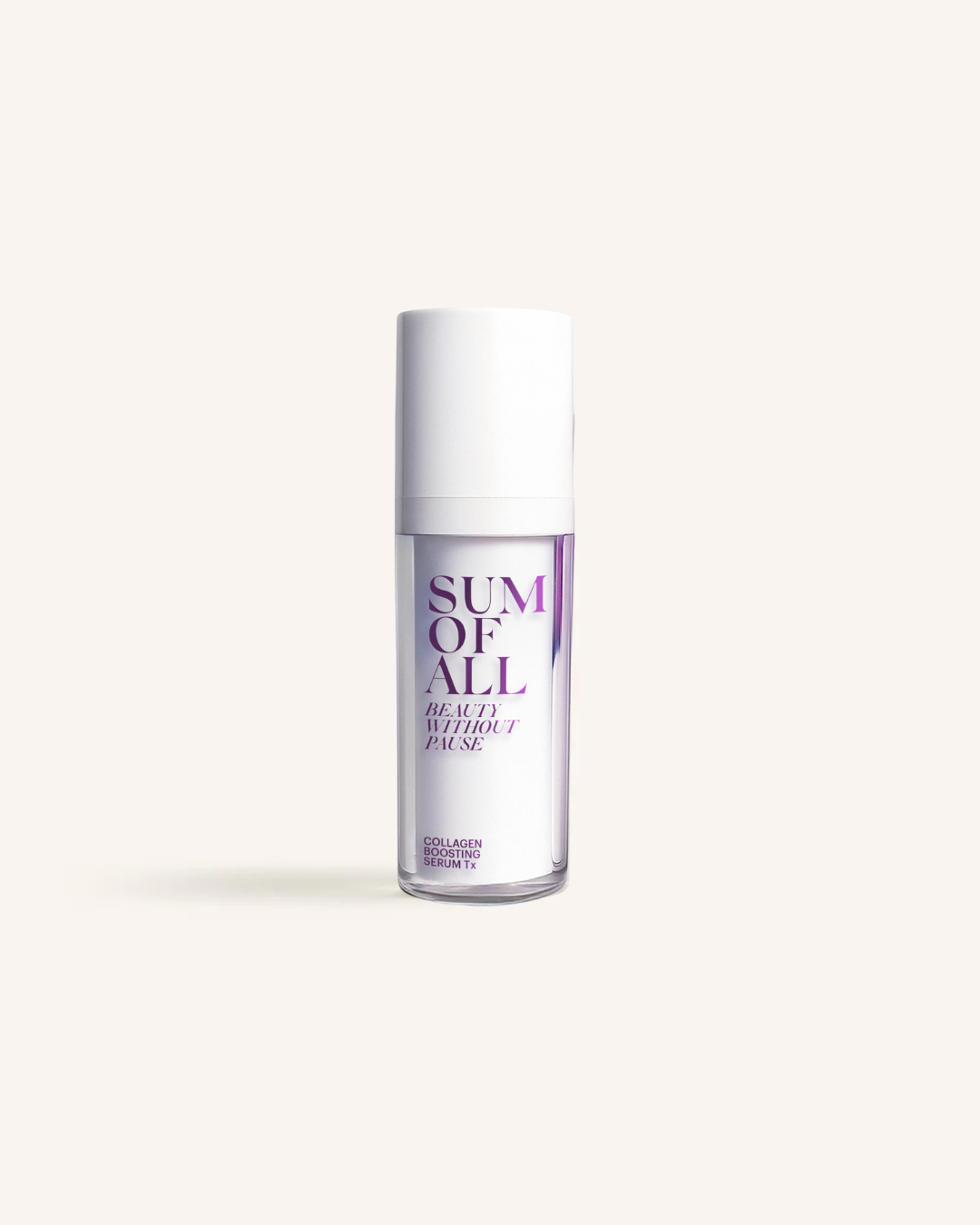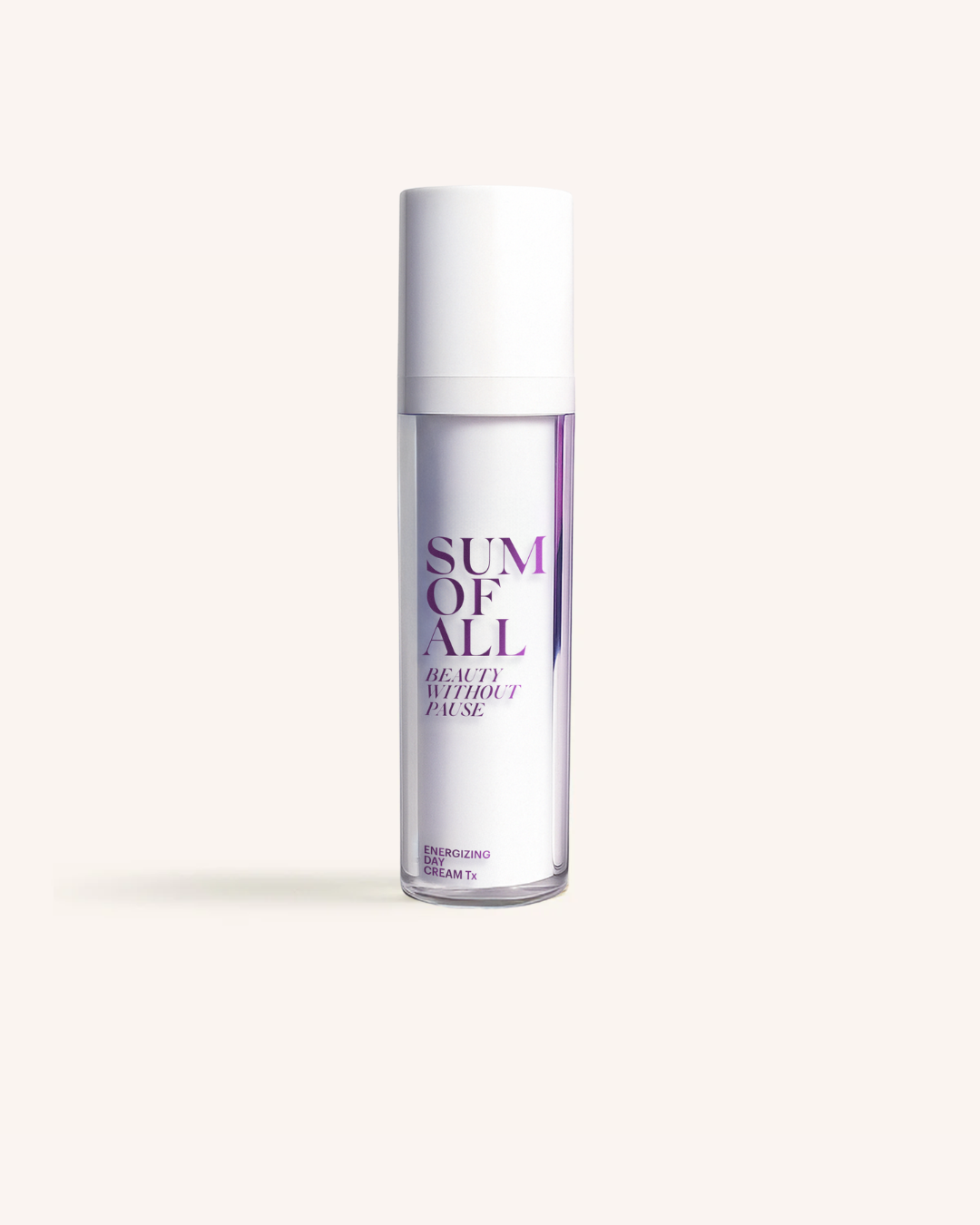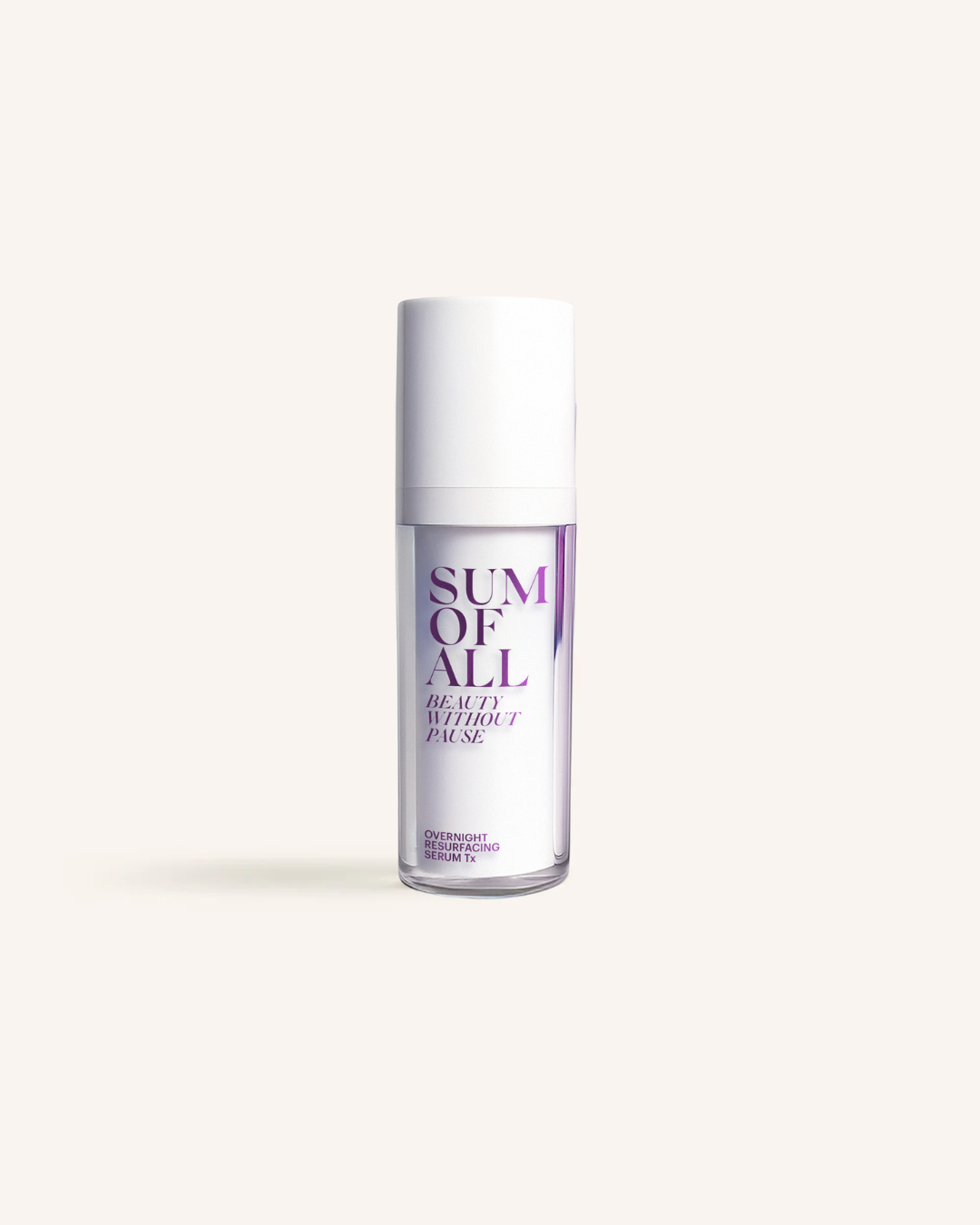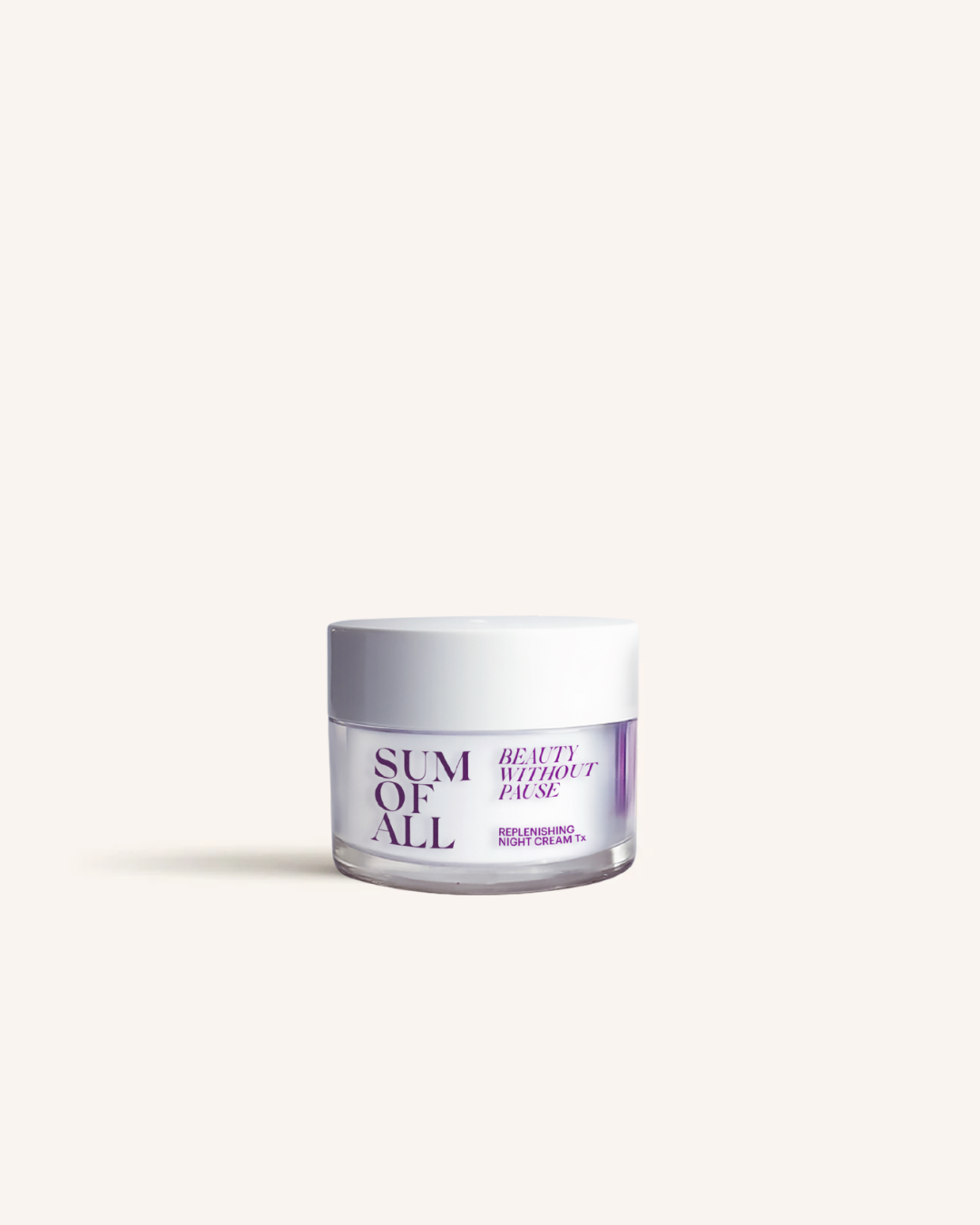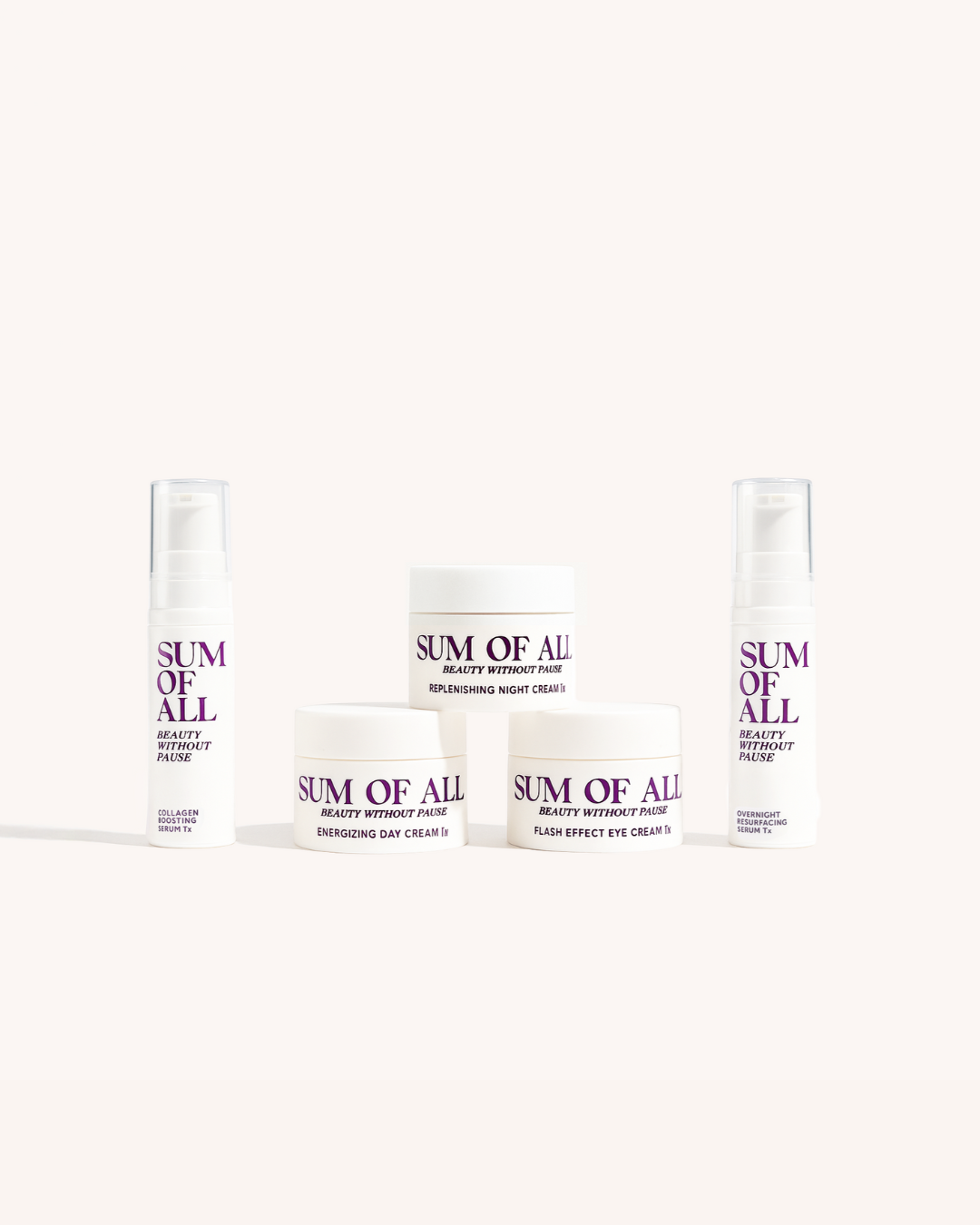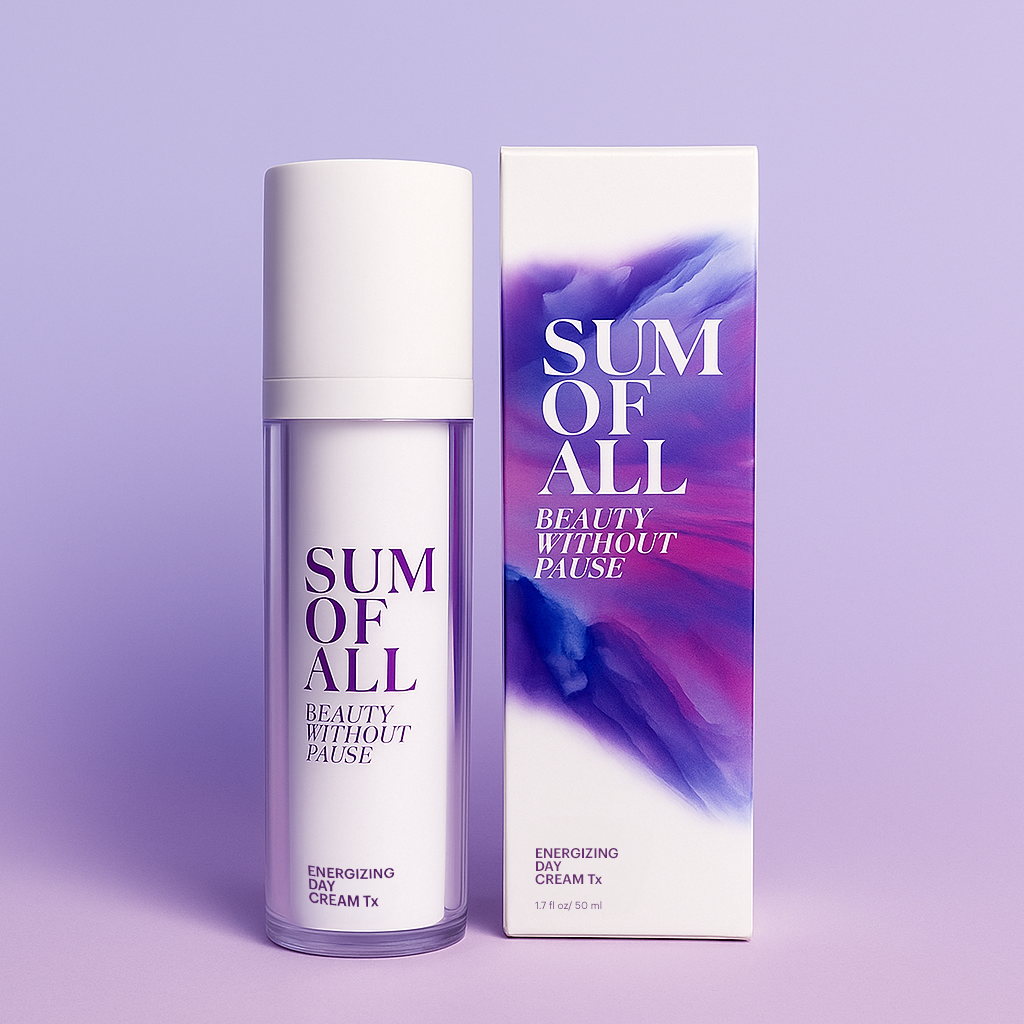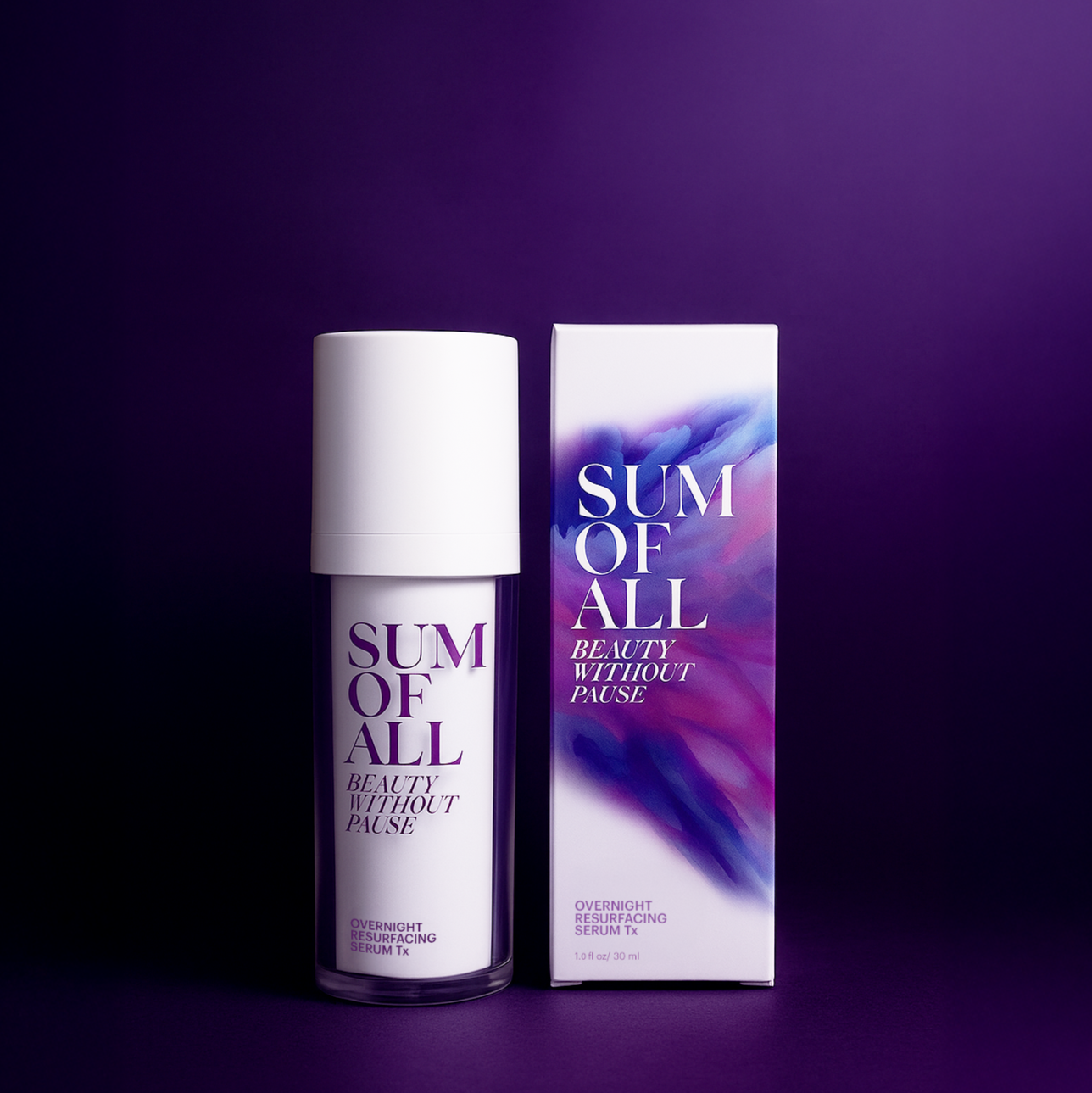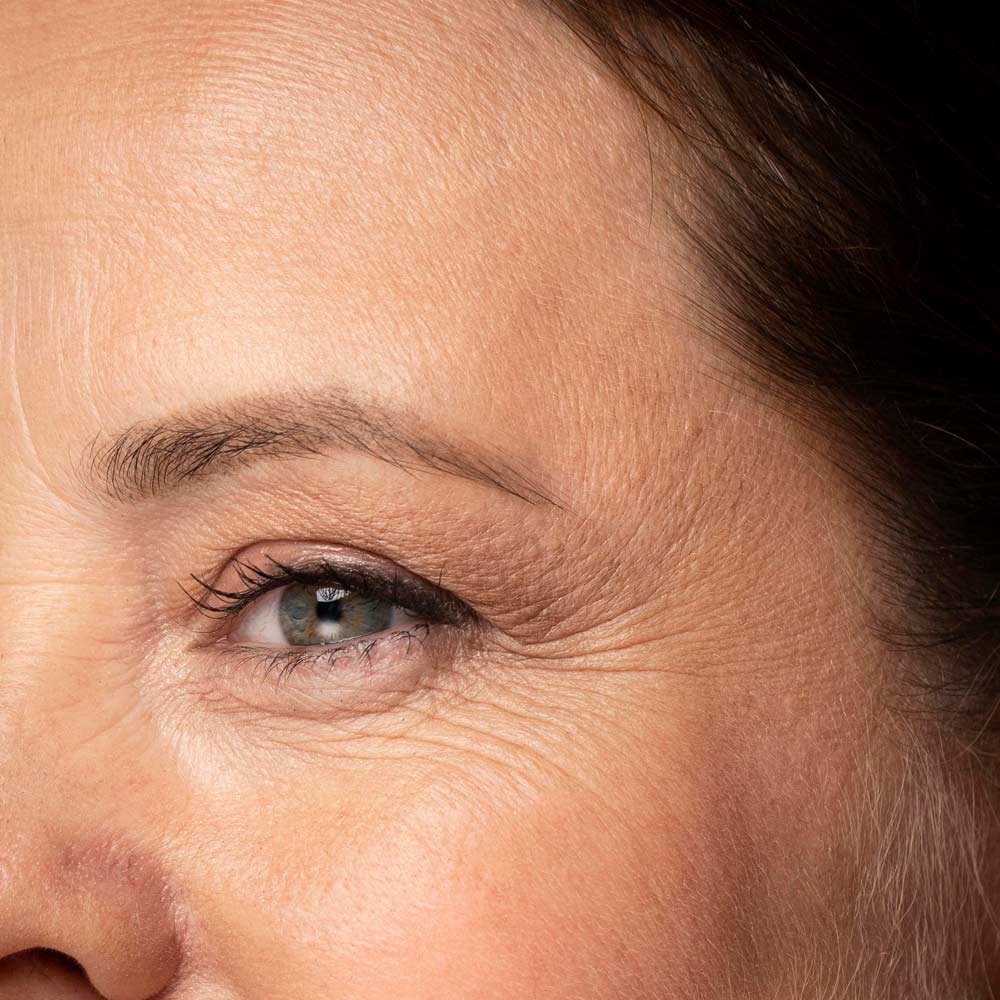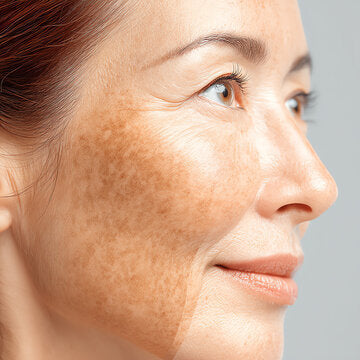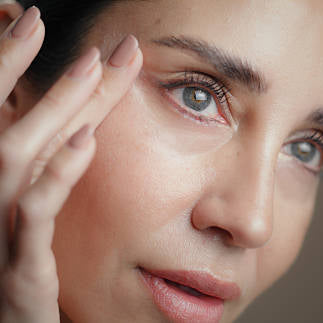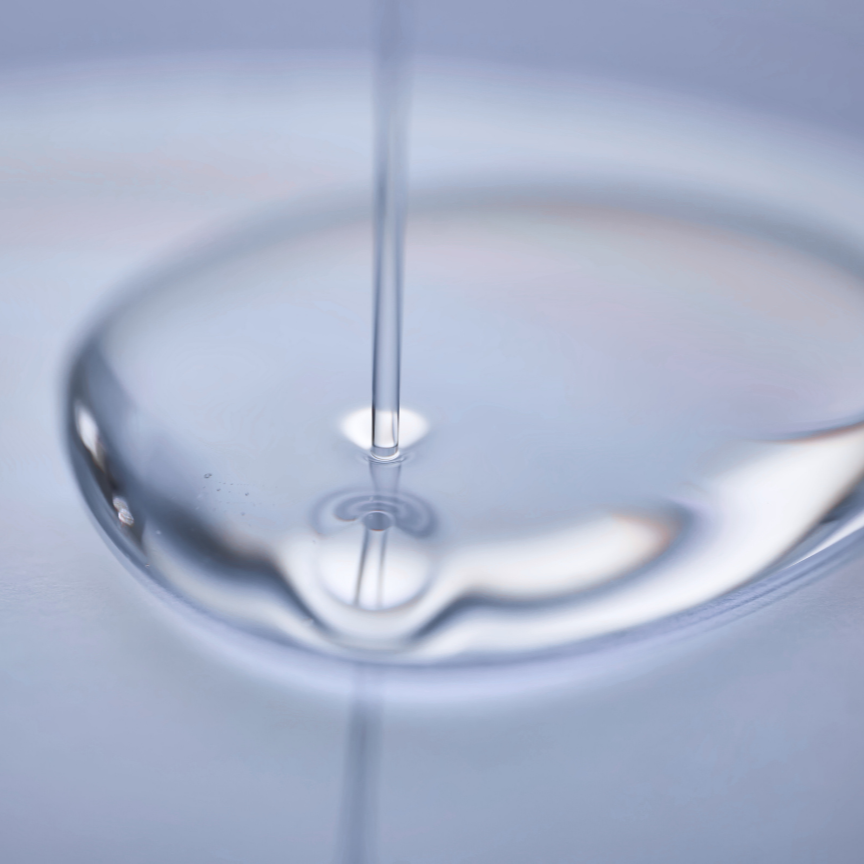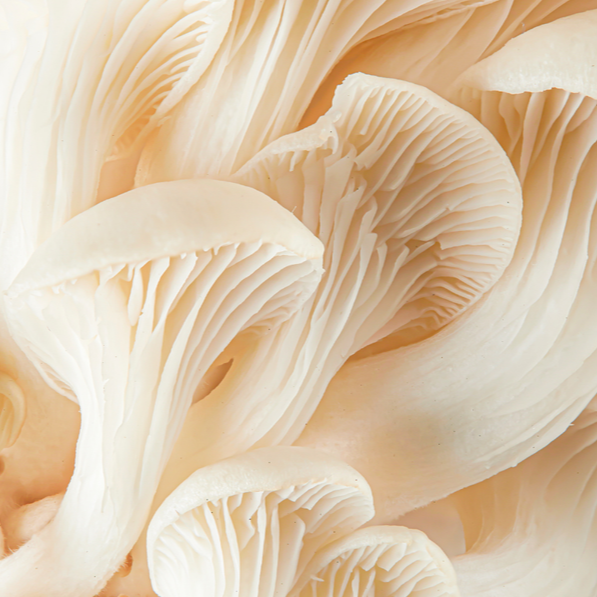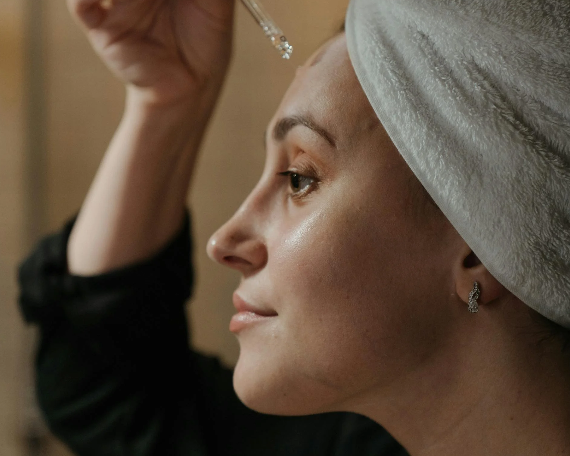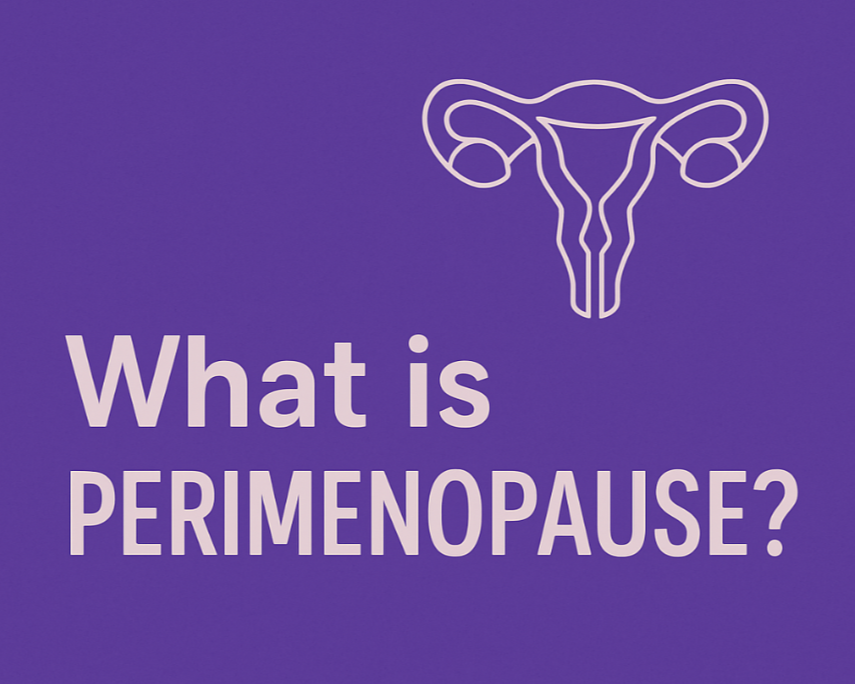As women, the idea that perimenopause signals the “beginning of the end” for our skin is all too common. In reality, it’s a time of transformation - one that offers an opportunity to care for your skin more intentionally.
Nature has long provided powerful support for balance and renewal, and some of its greatest allies for skin during perimenopause come from plants.
Botanical ingredients, particularly adaptogens, phytoestrogens, and plant-derived peptides, offer gentle yet effective support as your skin adapts to hormonal changes. They work with your body, not against it, helping you maintain harmony and resilience.
What’s Happening to Your Skin During Perimenopause
Perimenopause usually begins in your 40s, when estrogen and progesterone levels start to fluctuate. This hormonal shift can affect the skin’s structure, barrier function, and ability to retain moisture.
Common changes include:
-
Increased dryness and dehydration
-
Heightened sensitivity or redness
-
Loss of firmness and elasticity
-
Uneven tone or pigmentation
-
Slower cell turnover and healing
If this sounds familiar, you’re not imagining it - and you’re certainly not alone. Rather than trying to “fix” these changes with aggressive treatments, plant-based ingredients offer a more balanced, mindful approach that honors what your skin is going through.
Adaptogens: Grounding Care from Roots
Adaptogens are natural compounds found in herbs, roots, and mushrooms that help the body adapt to stress. In skincare, they help the skin do the same - calming inflammation, supporting barrier repair, and promoting balance.
Ingredients like Chaga mushroom and ginseng root help soothe and fortify skin that feels reactive or easily irritated. Think of them as your skin’s grounding force when everything feels a little unpredictable.
Phytoestrogens: Harmonious Hormonal Support
Phytoestrogens are plant-based compounds that gently mimic the effects of estrogen - a hormone essential for maintaining collagen, hydration, and elasticity.
As estrogen levels decline, the skin often becomes thinner, drier, and less resilient. Phytoestrogens derived from soy or red clover can help counter these effects, improving hydration and firmness without disrupting your body’s natural rhythm.
At Sum of All, several of our formulations feature these botanical ingredients to support your skin’s structure and comfort during this stage of life.
Peptides: Essential Building Blocks for Skin Repair
Peptides are short chains of amino acids that act as messengers, encouraging the skin to produce collagen and strengthen its barrier. Many of the peptides we use are plant-derived, chosen for their ability to boost firmness and repair while remaining gentle on sensitive skin.
When paired with hydrating botanicals like Tremella mushroom and hibiscus extract, peptides help restore midlife skin’s glow, elasticity, and calm.
Why Choose Plant-Based? Because It Works in Harmony with You
The appeal of plant-based skincare during perimenopause goes beyond being “natural.” It’s about synergy. Your skin isn’t broken - it’s evolving. Botanical ingredients honor that process, offering targeted support without overcorrecting.
This philosophy is at the heart of everything we create at Sum of All - from our Energizing Day Cream to our Flash Effect Eye Cream - products crafted to deliver calm, adaptive care rooted in plants and guided by science.
Take One Step at a Time
You don’t need to overhaul your entire skincare routine overnight. Start with one product that contains plant-based, hormone-aware ingredients, and pay attention to how your skin feels - not just how it looks.
Perimenopause is not an ending. It’s a recalibration. With the right support, your skin can remain balanced, resilient, and radiant for years to come.
Sources
-
Panossian, A., & Wikman, G. (2010). Effects of adaptogens on the central nervous system and the molecular mechanisms associated with their stress—protective activity. Pharmaceuticals. https://pubmed.ncbi.nlm.nih.gov/31568487/
-
Islam, M. A., et al. (2019). Phytoestrogenic compounds and skin health: Evidence from clinical and experimental studies. Nutrients. https://pubmed.ncbi.nlm.nih.gov/30873054/
-
Krutmann, J., & Schroeder, P. (2021). Plant peptides as novel anti-aging ingredients. International Journal of Cosmetic Science. https://pubmed.ncbi.nlm.nih.gov/34930387/
-
Patel, S., & Goyal, A. (2012). Chaga mushroom: A medicinal review. Phytotherapy Research. https://pubmed.ncbi.nlm.nih.gov/26617975/
-
Kim, J. H., et al. (2022). The effects of ginseng on skin aging and health: A review. Journal of Ginseng Research. https://pubmed.ncbi.nlm.nih.gov/35545374
-
Liao, K. F., et al. (2019). Soy isoflavones and skin health: A review. Nutrients. https://pubmed.ncbi.nlm.nih.gov/31634491/
-
Atkinson, C., et al. (2013). Effects of red clover isoflavones on skin aging: A randomized controlled trial. Menopause. https://pubmed.ncbi.nlm.nih.gov/23682774/
-
Rop, O., et al. (2019). The benefits of Tremella fuciformis in skin hydration. Mycobiology. https://pubmed.ncbi.nlm.nih.gov/31223972/
- Ali, R. B., et al. (2017). Hibiscus sabdariffa extract promotes collagen synthesis and skin elasticity. Journal of Ethnopharmacology. https://pubmed.ncbi.nlm.nih.gov/28248674/
Read more

Let’s clear up a common misconception: that radiant glow isn’t exclusive to people under 30, nor is it reserved for supermodels or perfectly edited selfies. It’s not something that fades as you rea...

What Exactly Is a Resurfacing Serum? Think of it as a gentle guide for your skin’s natural rejuvenation journey. Our Overnight Resurfacing Serum is crafted to help enhance your skin’s texture and ...


